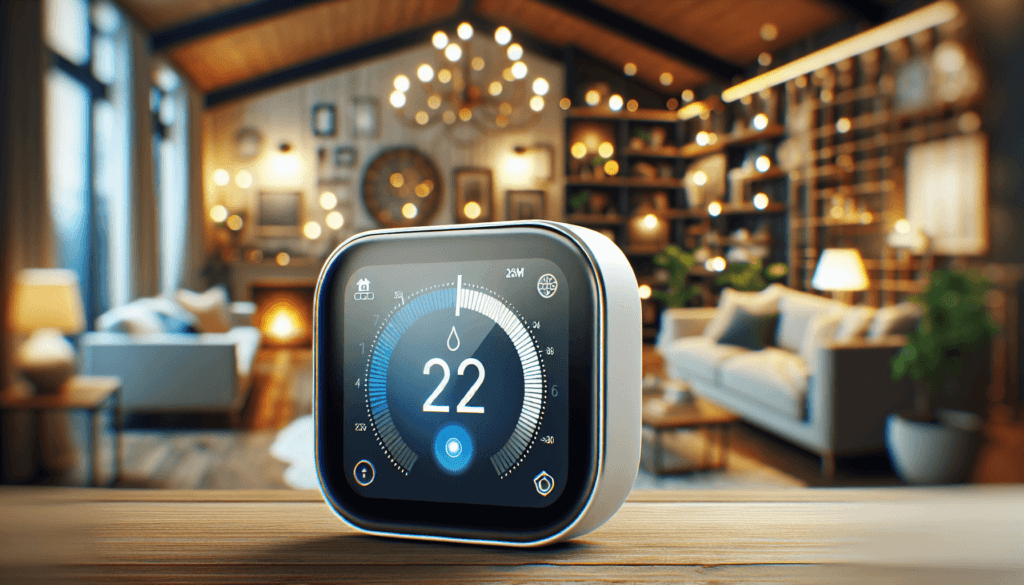Have you ever wondered how much heating water contributes to your monthly utility bill? It’s one of those aspects of household expenses that might often get overlooked, yet it can add up significantly over time. Understanding this will not only help you become more mindful of your energy consumption but also give you insights into how you can reduce your costs effectively.
Learn More About Heating Water Efficiency
Understanding the Role of Water Heating in Your Energy Bill
The process of heating water can consume a large portion of your household’s energy, and this often translates to a substantial chunk of your utility bill. Generally, water heating accounts for about 14-18% of utility bills, making it the second largest energy expense in your home, following heating and cooling. If you take a closer look at how water is heated in your home, you’ll find that small changes in usage patterns could lead to substantial savings on your bill.
Water Heater Types and Their Efficiency
When considering how much heating water affects your bill, it’s crucial to acknowledge the type of water heater you have. The kind you use can significantly influence the efficiency of how water is heated and, consequently, how much it costs.
-
Conventional Storage Water Heaters: These are the most common types, storing a reserve of hot water that is used when needed. Though convenient, they often mean energy is wasted on keeping large volumes of stored water at a constant temperature.
-
Tankless (On-Demand) Water Heaters: They heat water directly without storing it, possibly reducing energy use by up to 34% compared to conventional storage water heaters as they eliminate the standby losses of keeping a water tank at a constant temperature.
-
Heat Pump Water Heaters: These use electricity to move heat from one place to another instead of generating heat directly, offering substantial energy savings, although they might require a larger upfront investment.
-
Solar Water Heaters: These rely on capturing sunlight, converting it into heat. While they offer significant savings in the long term, the dependency on sunlight and initial costs might be deterrents.
Understanding these types can help you make a better-informed decision if you’re considering changing or upgrading your water heater to save on your bill.
Hot Water Usage: Where Does It Go?
Examining where and how your household uses hot water can provide insights into opportunities for efficiency and savings. Let’s break down some of the main ways hot water is used in the average household:
Showers and Baths
Bathing can account for nearly 17% of the indoor water use, and since showers and baths typically require hot water, this can notably affect your energy bill. Simple actions like reducing shower time or installing a low-flow showerhead can make a difference, as they reduce the volume of hot water used without compromising your experience.
Laundry
Depending on your washing habits, laundry can consume a significant amount of hot water. Opting for cold or warm cycles, rather than hot, especially for items that don’t require it, can save a considerable amount of energy. Additionally, considering a front-loading washing machine, which uses less water and energy, could be beneficial.
Dishwashing
Both handwashing and using a dishwasher significantly contribute to hot water use. Modern dishwashers are designed to be energy and water-efficient, often using less hot water compared to washing dishes by hand. Running your dishwasher only at full capacity and using the energy-saving mode can also help lower costs.
Other Uses
Other activities such as cooking, cleaning, and gardening conservatively consume hot water, but taken together, they could slightly add to your overall use. Being mindful of your usage in these activities can also help trim down costs.
Explore Ways To Reduce Your Water Heating Bill
Reducing Water Heating Costs
After identifying where hot water is primarily used in your home, you can take steps to reduce costs without significantly changing your lifestyle.
Upgrade to Energy-Efficient Appliances
If replacing appliances is an option, consider choosing energy-efficient models. Appliances with the Energy Star label, for instance, are designed to consume less energy overall. They can be marginally more expensive initially but offer good savings in the long run.
Insulate Your Water Heater and Pipes
Adding insulation to your water heater and the first few feet of hot and cold water pipes can keep the water hotter for longer periods. This diminishes the energy needed to reheat water after it cools, thus lowering bills.
Lower Water Heater Temperature
The default setting for many water heaters is 140 degrees Fahrenheit. However, setting it to 120 degrees is often sufficient for household needs and can considerably reduce energy costs without affecting comfort.
Use Less Hot Water
Becoming conscious of your hot water use is a simple yet effective way to save on your bills. Measures such as taking shorter showers, turning off the tap while soaping hands, and only using hot water when necessary are small steps that contribute to larger savings.
Monitoring Usage and Making Adjustments
Keeping an eye on your energy consumption and adjusting your habits accordingly can lead to better outcomes for both your utility bill and the environment.
Track Your Usage
Utilizing smart meters or energy-monitoring devices can provide valuable insights into how much energy you use daily and where it might be wasted. This data allows you to make informed decisions about altering or sustaining your energy use.
Change Habits and Encourage Family Participation
Encourage everyone in your household to be mindful of hot water usage. Simple actions like closing the bathroom sink tap while brushing, taking showers instead of baths, and using newer energy-efficient appliances can collectively make a significant difference.
Regular Maintenance of Water Heaters
Regular inspections and maintenance of your water heater can also ensure it functions efficiently. A properly maintained water heater can extend its life and prevent unnecessary energy waste. Flushing the tank every six months or as recommended by the manufacturer is a good start.
The Environmental Impact of Water Heating
Beyond how water heating impacts your utility bill, consider its environmental footprint as well. Traditional water heating methods can generate significant CO2 emissions, contributing to broader climate change issues. By reducing your water heating demand, you not only save money but also contribute less to environmental degradation.
Embracing Renewable Energy Solutions
Adopting renewable energy solutions, such as solar water heaters, can drastically reduce your reliance on fossil fuels. Though initially more expensive, they offer clean energy, reducing your carbon footprint. Plus, various tax credits or incentives may be available to help offset these costs.
Encouraging Sustainable Practices
Integrating sustainable practices, such as rainwater harvesting or greywater recycling, can reduce water heating loads by providing alternative sources for cleaning or irrigation. Considering options for renewable energy can also decrease your home’s carbon emissions significantly.
Calculating Your Water Heating Costs
To quantitatively understand the impact of water heating on your bill, you need to calculate the costs. This involves understanding your water heater’s energy consumption and how often it’s used.
Sample Calculation
Firstly, identify your water heater type and its efficiency, measured in the energy factor (EF) for electric and gas heaters. Then, gather the following information:
- Daily hot water use: Typically measured in gallons.
- Cost per unit of energy: Electricity is often measured in kilowatt-hours (kWh), gas in therms.
Once you have this information, compute the daily and monthly energy consumption of your heater using the formula:
[ text = text times left(frac}}right) times text ]
Using this cost allows you to pinpoint what part of your bill is dedicated to heating water and helps you identify opportunities for savings.
Making a Plan for Savings and Sustainability
Once you understand your consumption and have a sense of potential savings, it’s time to put a plan in place.
Implementing Energy Audits
Regular energy audits can help you spot inefficiencies and optimize your home’s energy consumption. Look for professional audits or consider DIY options to regularly check both water heating systems and appliances.
Long-Term Investment in Technologies
Invest in technologies like smart thermostats or whole-home water filtration systems that can help manage water and energy usage even more effectively. Though initial investments are higher, they pay off in the long term, both financially and sustainably.
Educating and Involving Your Household
Engage all household members in water-saving practices. Small, day-to-day behavioral changes can translate into significant savings over time. Consider having family competitions or challenges centered around reducing water usage to make the process fun and participative.
In closing, heating water is a significant yet manageable component of your energy bill. Understanding the factors that contribute to these costs, the types of water heaters, and usage habits can empower you to take actionable steps. Not only will you curb your expenses, but you’ll also contribute positively to the environment. With careful consideration, mindful usage, and strategic investments, you can navigate your water-heating costs effectively.


